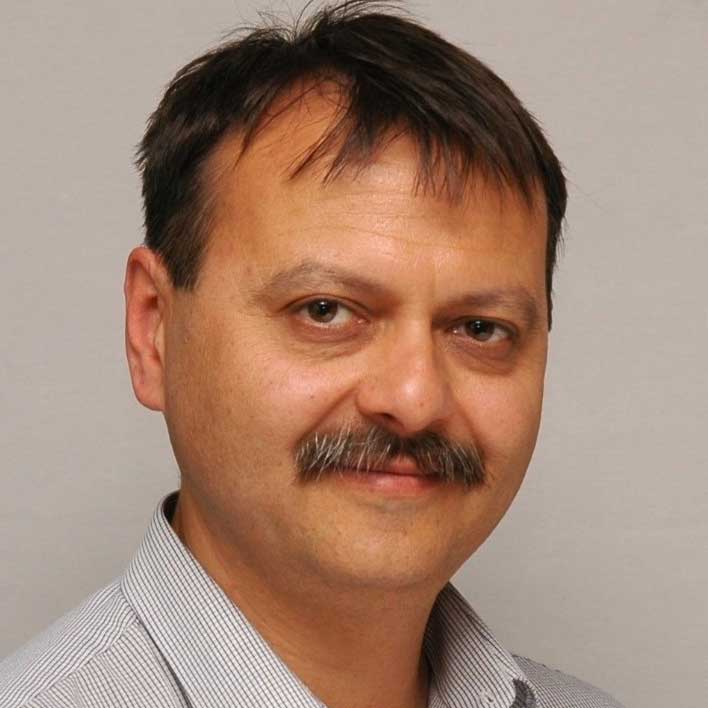Introducing Dr Imre Lengyel
What primarily developed your interest in researching Alzheimer’s?
I was intrigued by the signalling, or lack of signalling by amyloid beta aggregates, and how these influenced processes of learning and memory.
Currently, what is the key focus of your research?
My group studies the correlation between eye and brain pathology using cellular and animal model experiments as well as experiments on living human and cadaver eye tissues.
What has been the most surprising finding during your research career?
The lack of suitable models for studying Alzheimer’s disease and dementia.
When people learn you are involved in researching Alzheimer’s, what is the main question they ask?
Could the retina be used as a surrogate, especially early surrogate for what is happening in the brain?
In your opinion, how important is collaboration and integrating multiple research strategies to unravel the complexities of Alzheimer’s?
It is absolutely essential to bring together expertise from different fields. Without this, a full picture of the disease ethology cannot be uncovered. A prime example for this is the so called “Deep and Frequent Phenotyping Study for Alzheimer’s Disease” in the UK in which I am the Ophthalmology theme lead.
How close do you feel we are towards making a key breakthrough in slowing the progression of, preventing, or even curing Alzheimer’s? And what is the most important thing to fast track us to this point?
With the increasingly widening collaboration networks our chances are ever increasing. Keeping on widening this network further is key. Without appropriate communication and collaboration there will only be confusion.
Tell us something about yourself that keeps you motivated and that might surprise us
I am incredibly excited about working on the interface between basic and clinical science. Being able to interact and learn from patients and clinical colleagues of Alzheimer’s disease and trying to translate those to our experimental approaches is challenging but rewarding. Probably even more rewarding to find that some of our bench research can directly be translated to clinical approaches, and one of our recent publications is a prime example of this.
And finally … is there a question that you’ve always wished someone would ask about your research, but never has?
Why is that University administration hampers your progress rather than helps it?
Dr Imre Lengyel is a Senior Lecturer at the School of Medicine, Dentistry and Biomedical Sciences, Queen’s University, Belfast and the Bill Brown Charitable Trust Senior Research Fellow at UCL Institute of Ophthalmology. He has a particular interest in pathological changes in the eye in association with neurodegenerative diseases including Alzheimer’s.
His research is interdisciplinary based, combining pure (basic) research , clinical collaborations, and translational work to help deliver better patient health and care.
Find out more about Imre’s research and clinical work by:
- Visiting his website at Queen’s University
- Following him on Twitter: @lengyel_imre
- Watching him discuss his research:


